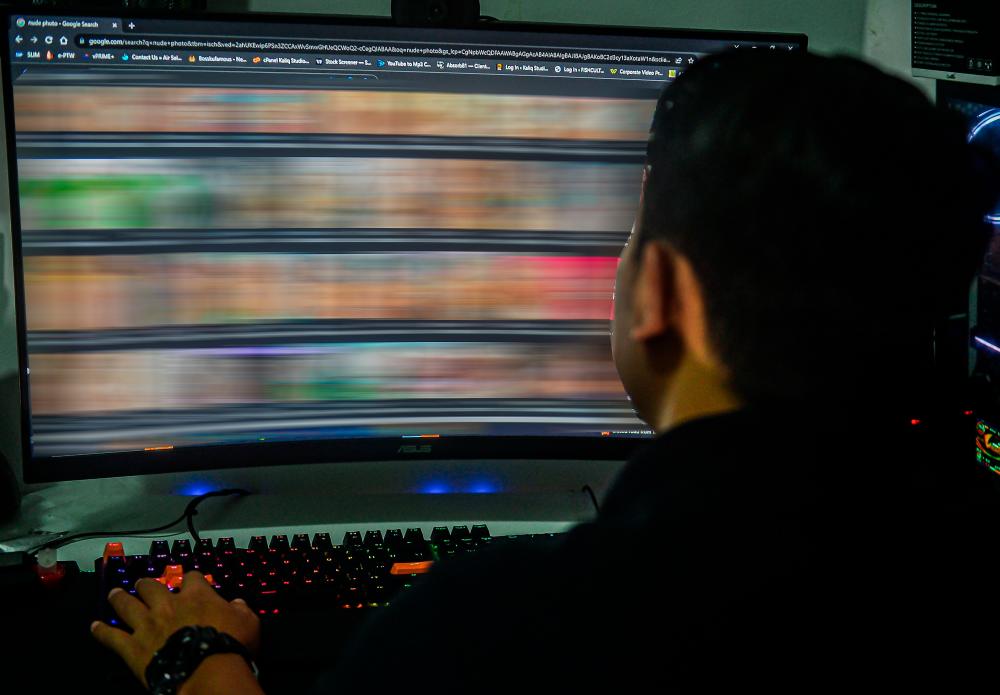PETALING JAYA: Farah Zubir (not her real name) works at a bank. One day, she is told by a colleague that she was featured in the lead role of a pornographic movie.
A victim of “deepfake” (a digitally altered image), her face was used to portray her as an adult movie actress.
In another case last year, former director-general of Health Tan Sri Dr Noor Hisham Abdullah also complained that his image and voice were used by unknown parties to advertise medication for diabetes.
Cybersecurity firms in Malaysia are reporting an increasing number of inquiries and concerns about deepfakes from businesses and individuals. At the same time, social media platforms are witnessing a surge in the spread of such content.
Prof Dr Vinesh Thiruchelvam, who is chief innovation and enterprise officer at a private university, said assessing technological infrastructure to address deepfakes reveals gaps in real-time detection and alert systems.
“Recent concerns have escalated due to the negative consequences of this technology. According to the Sumsub Identity Fraud Report 2023, Malaysian deepfake cases have surged tenfold since 2022.
“The surge in global deepfake cases reported by Sumsub suggests a serious situation and underscores the need for vigilance and effective countermeasures,” he said.
Sumsub is a global company that offers a single verification platform that helps individuals and businesses to monitor fraud worldwide.
Vinesh said despite having the Communications and Multimedia Act 1998, which potentially criminalises indecent or false online content, Malaysia lacks comprehensive fraud prevention mechanisms.
“Existing legislation requires enhanced standards, policies and proactive measures to counter the escalating threat of deepfakes,” he said, adding that the emergence of artificial intelligence tools can digitally undress individuals in altered videos, which are then circulated on public platforms for profit.
“This underscores the profound psychological impact on victims who unexpectedly discover such deceitful content online. It leads to humiliation, vulnerability and fear.”
Vinesh said promising technologies to counter deepfakes include sophisticated detectors that are capable of identifying biometric anomalies within video files, and systems that inspect human physiological signals like heartbeat or voice patterns to distinguish them from synthetic renditions.
“The corporate and enterprise sectors in Malaysia must also prioritise cybersecurity measures, including employee training and strong network security protocols to mitigate the risks associated with deepfakes.”
He said despite efforts to mitigate its impact, the proliferation of deepfakes is worsened by the widespread internet and smartphone penetration in Malaysia, which exceeds 90%.
“As deepfake technology continues to evolve, it becomes increasingly sophisticated and harder to detect. New algorithms and techniques emerge frequently, making it a moving target for detection methods.
“Addressing the challenge of deepfakes requires collaborative efforts from various stakeholders, including tech companies, researchers, policymakers and the public. Coordinating these efforts and fostering collaboration can be a logistical challenge.”
Vinesh said to address the intricate challenges presented by deepfakes, the government, tech industry and research institutions must collaborate, adding that a proactive step would involve establishing a dedicated task force comprising relevant stakeholders to comprehensively investigate the evolving landscape of deepfakes and cybersecurity concerns.
“Inspired by initiatives such as the Coalition for Content Provenance and Authenticity, which develops standards to verify media content origins, the government could encourage industry collaboration to develop technical standards for authenticating content sources and origins.
“This collaborative effort could include leading companies such as Adobe, Arm, Intel, Microsoft and Truepic to create a robust framework to address the multifaceted nature of deepfake challenges in Malaysia.”









